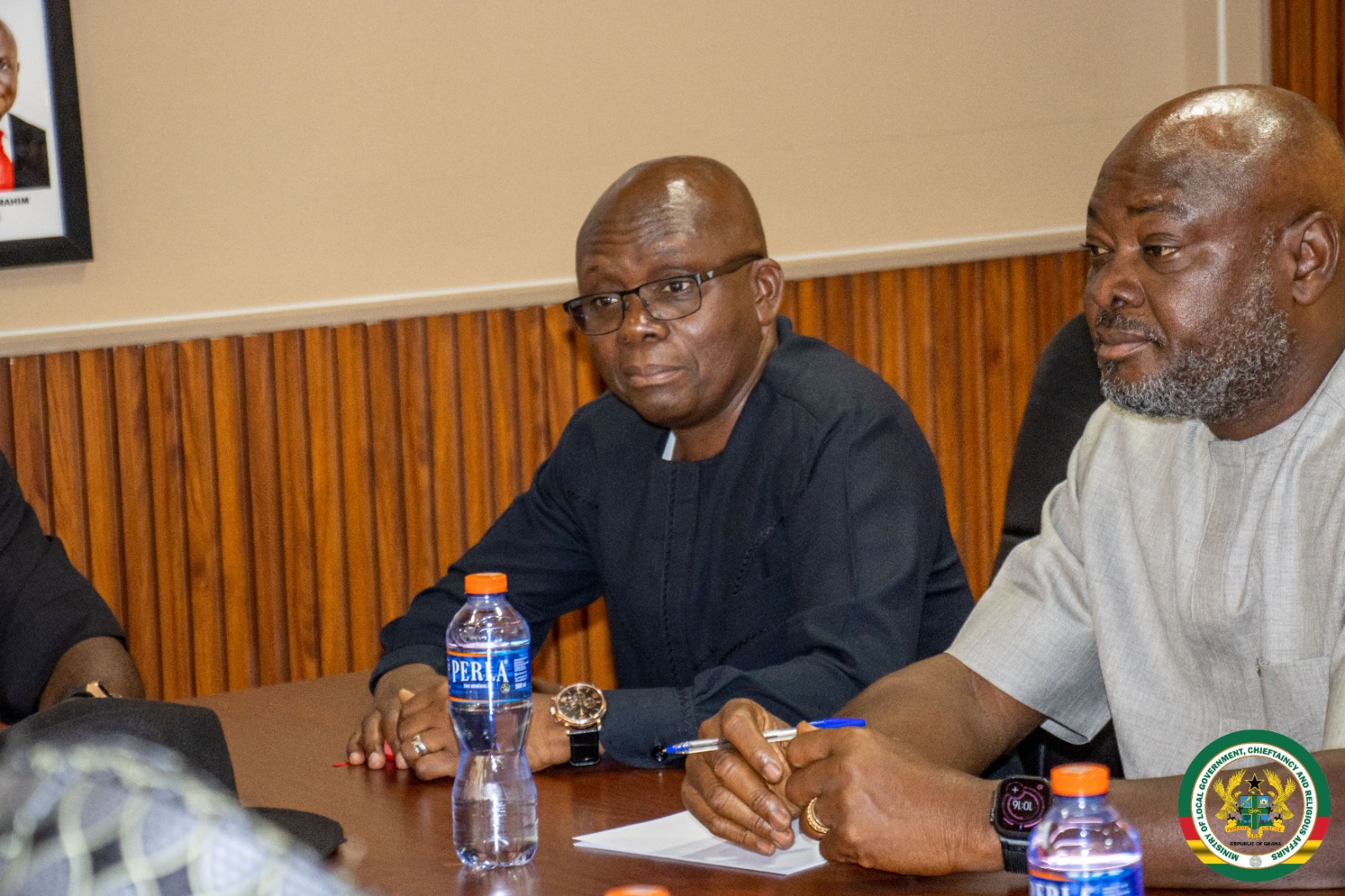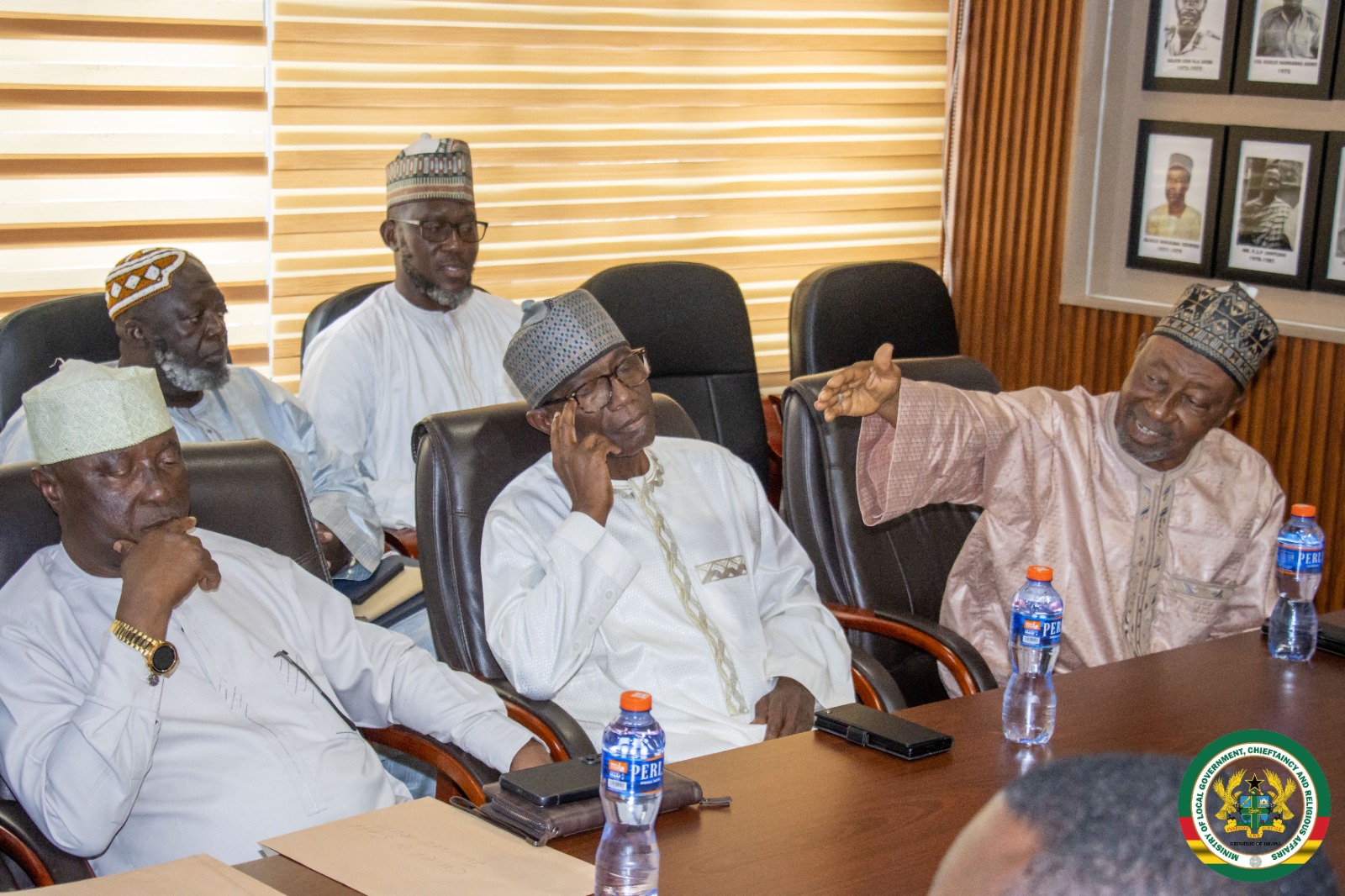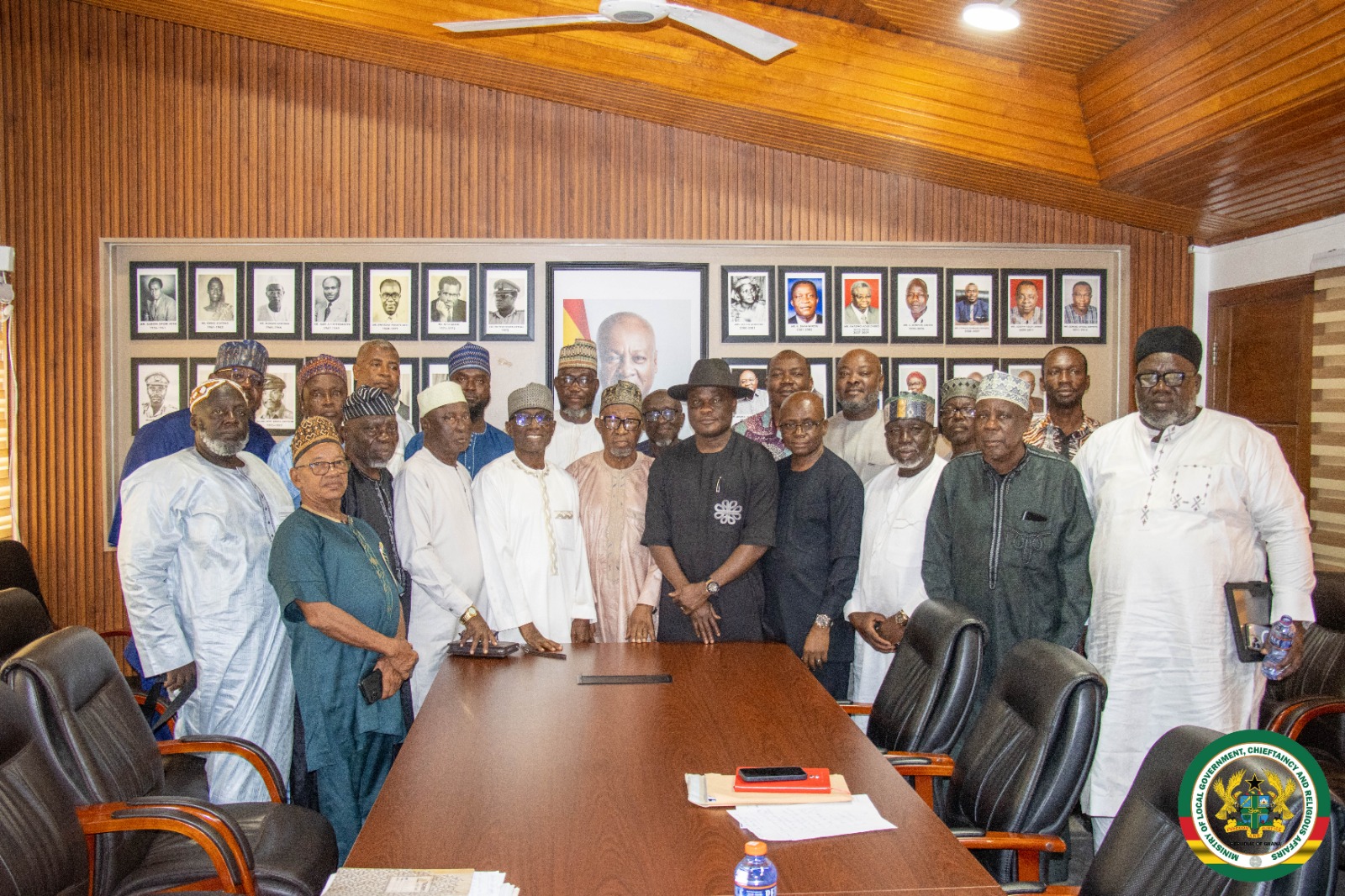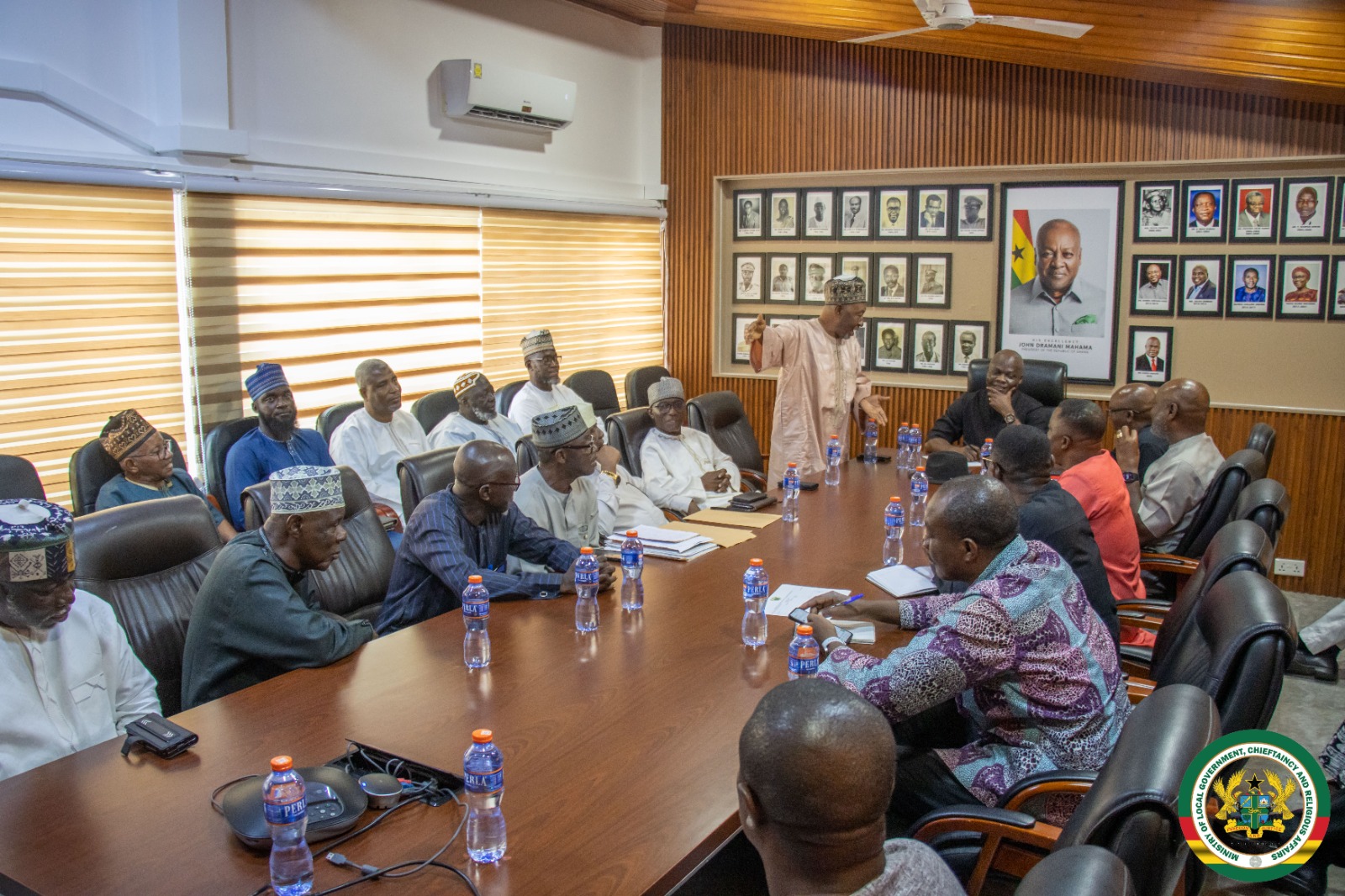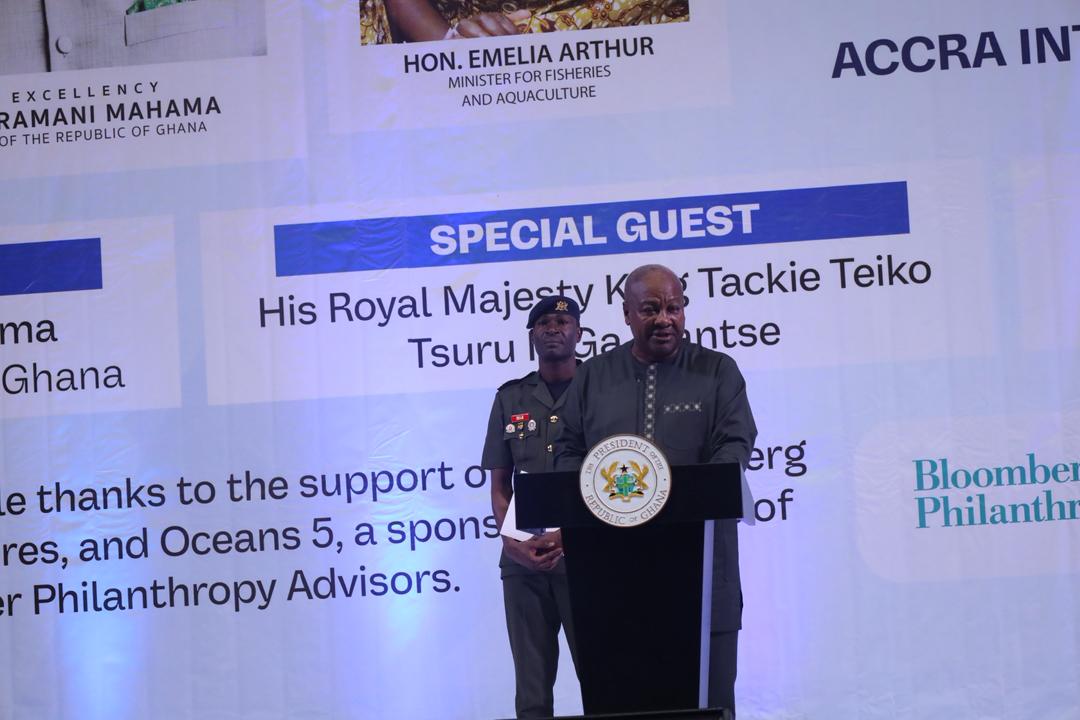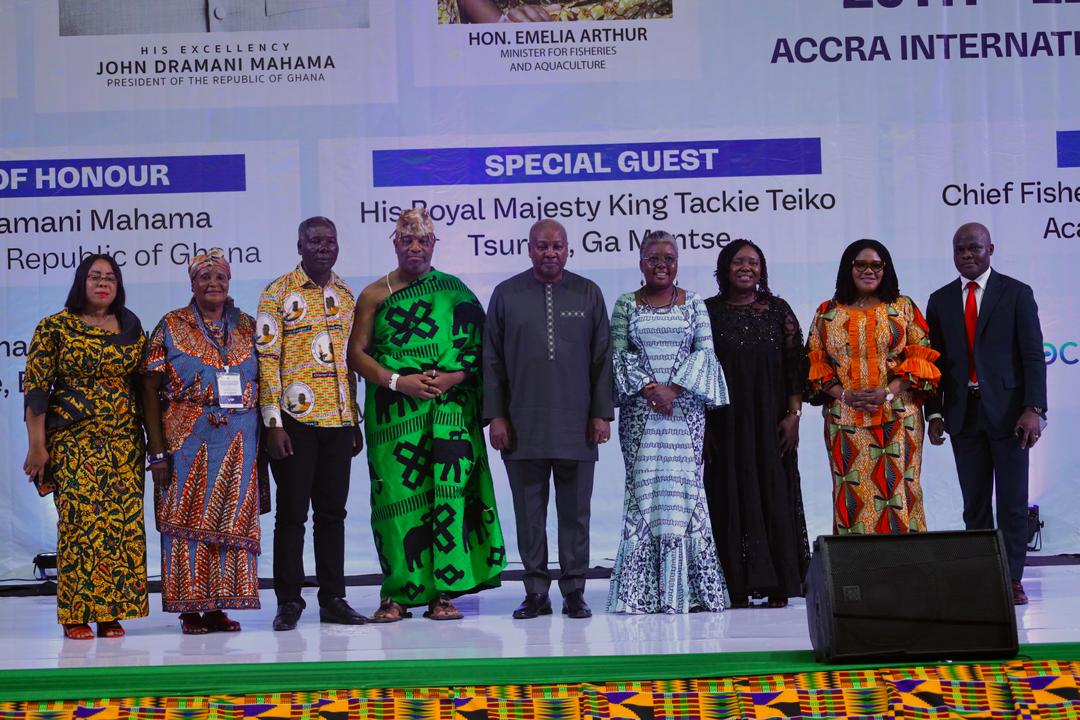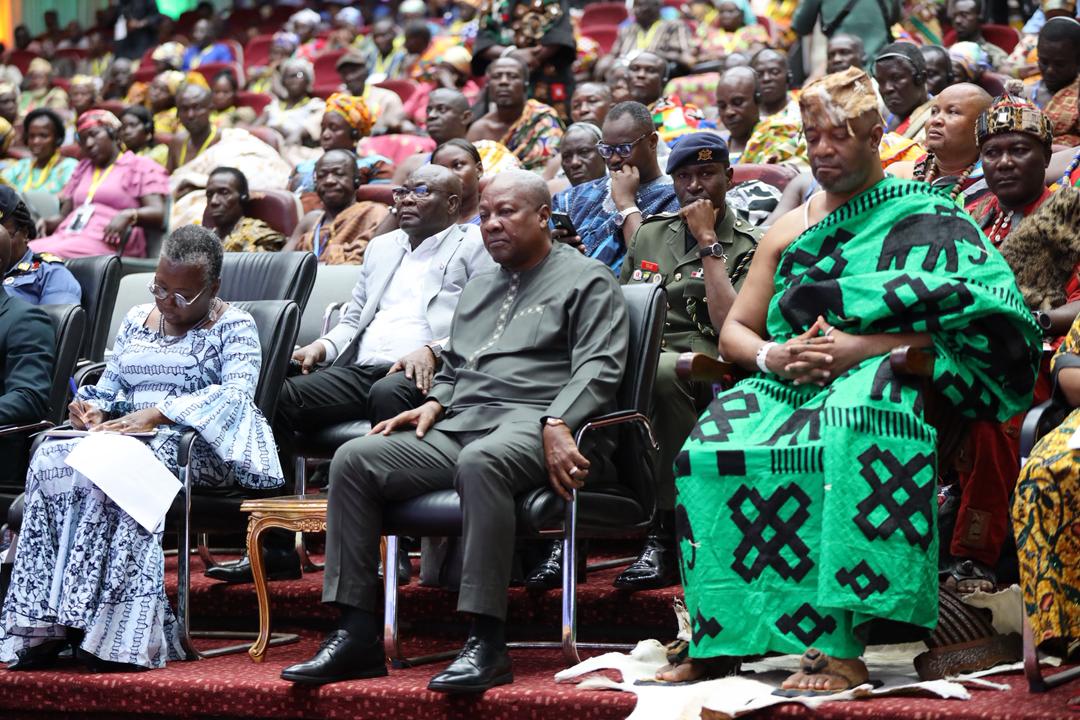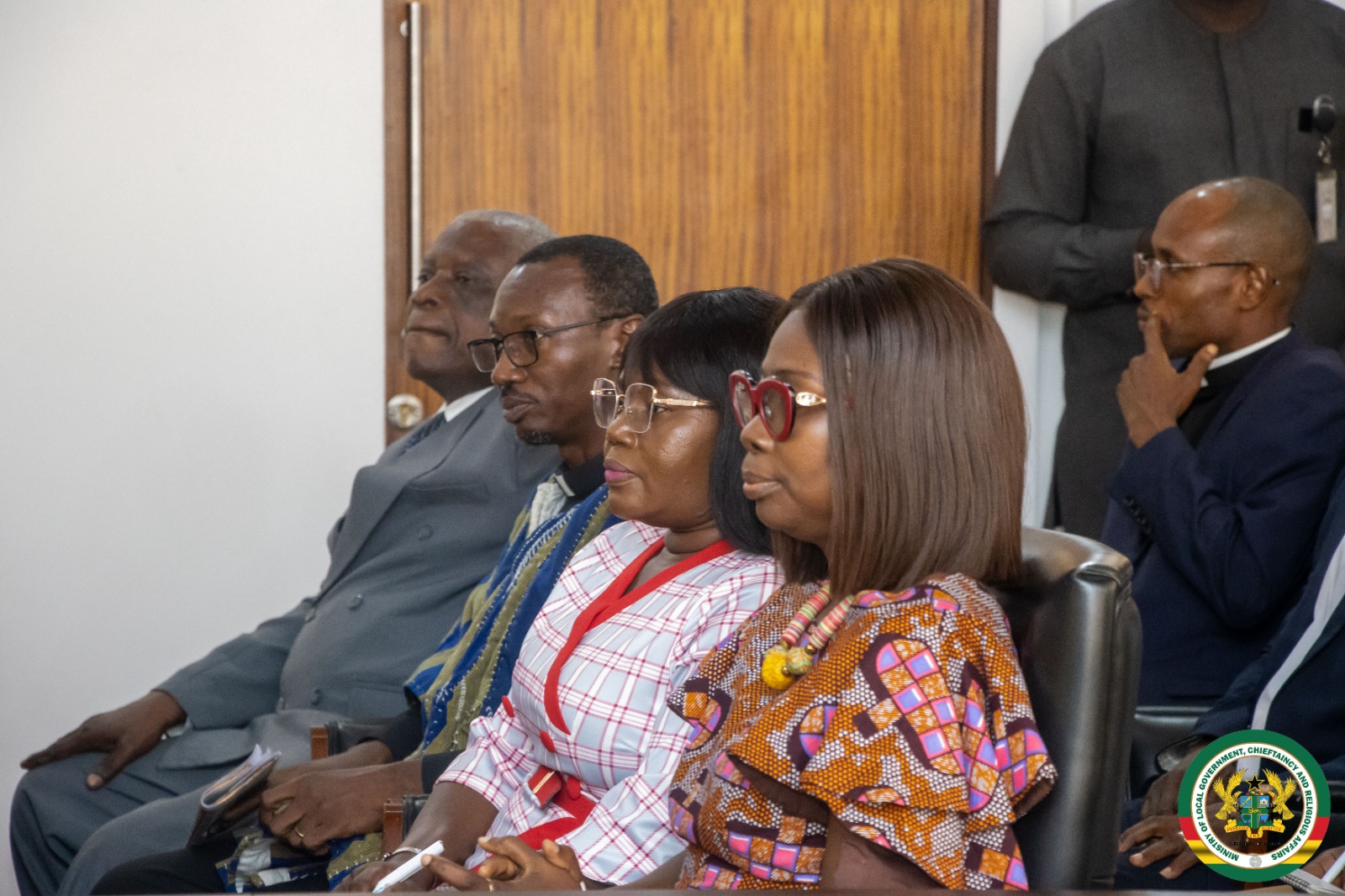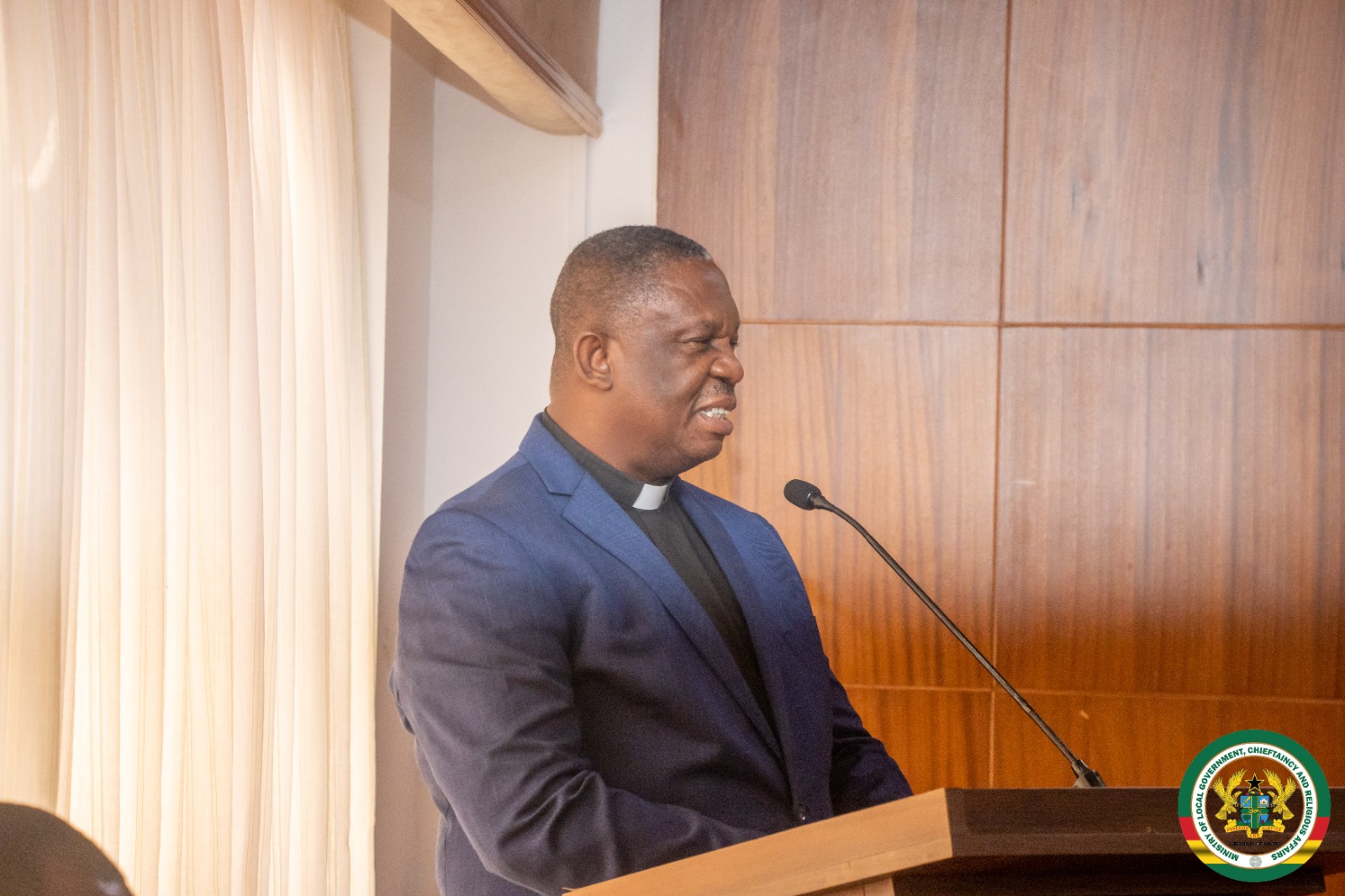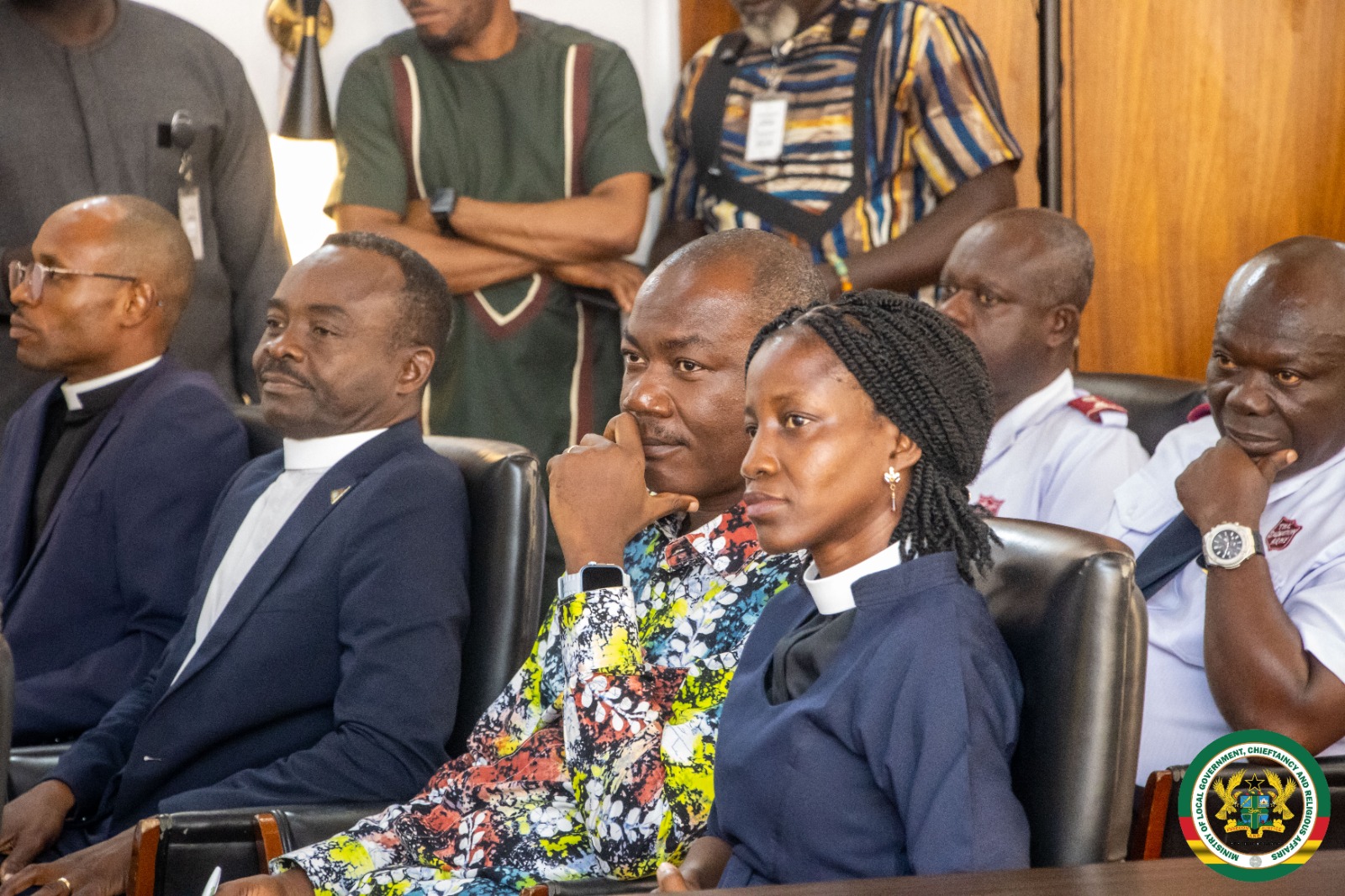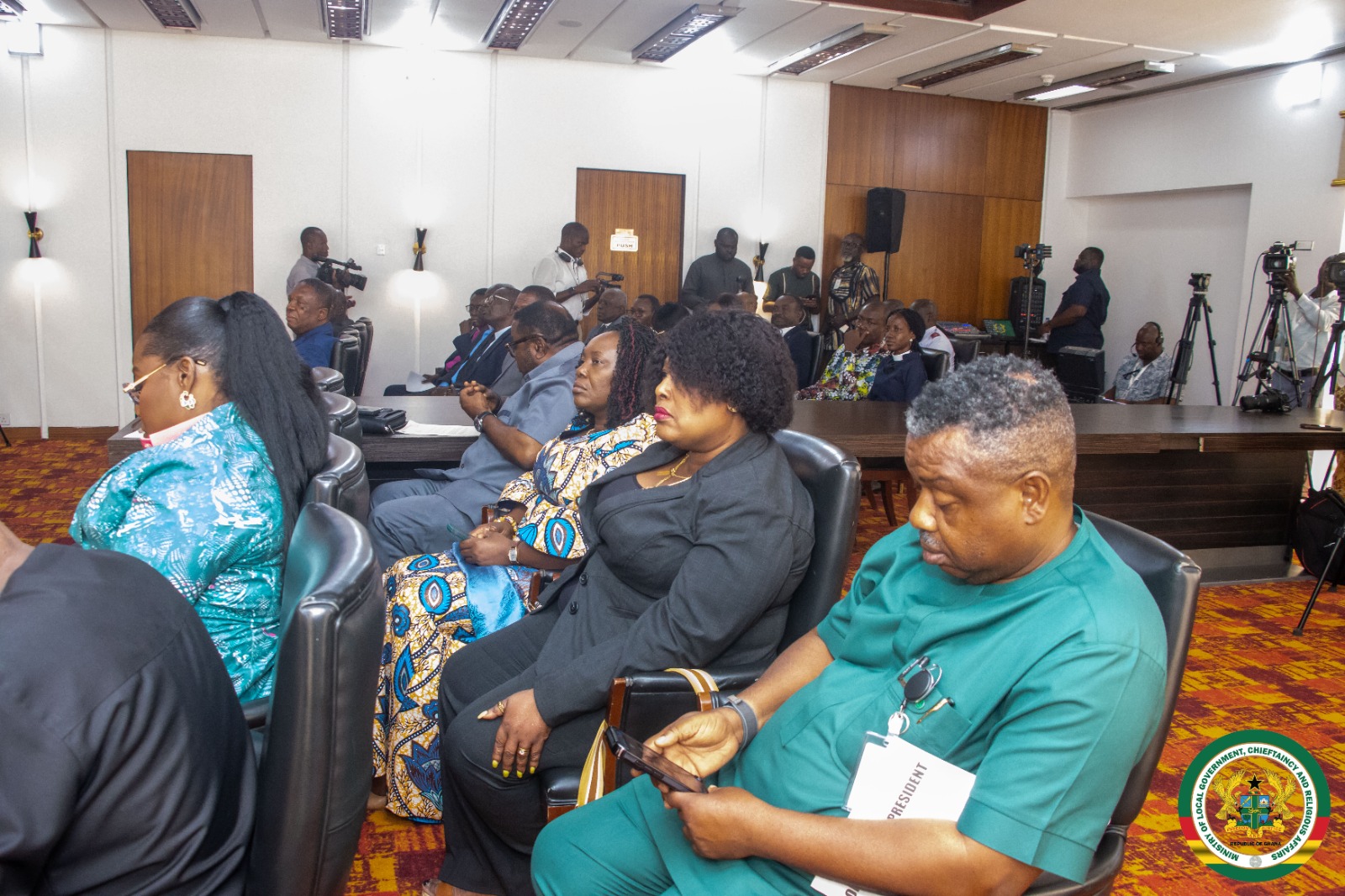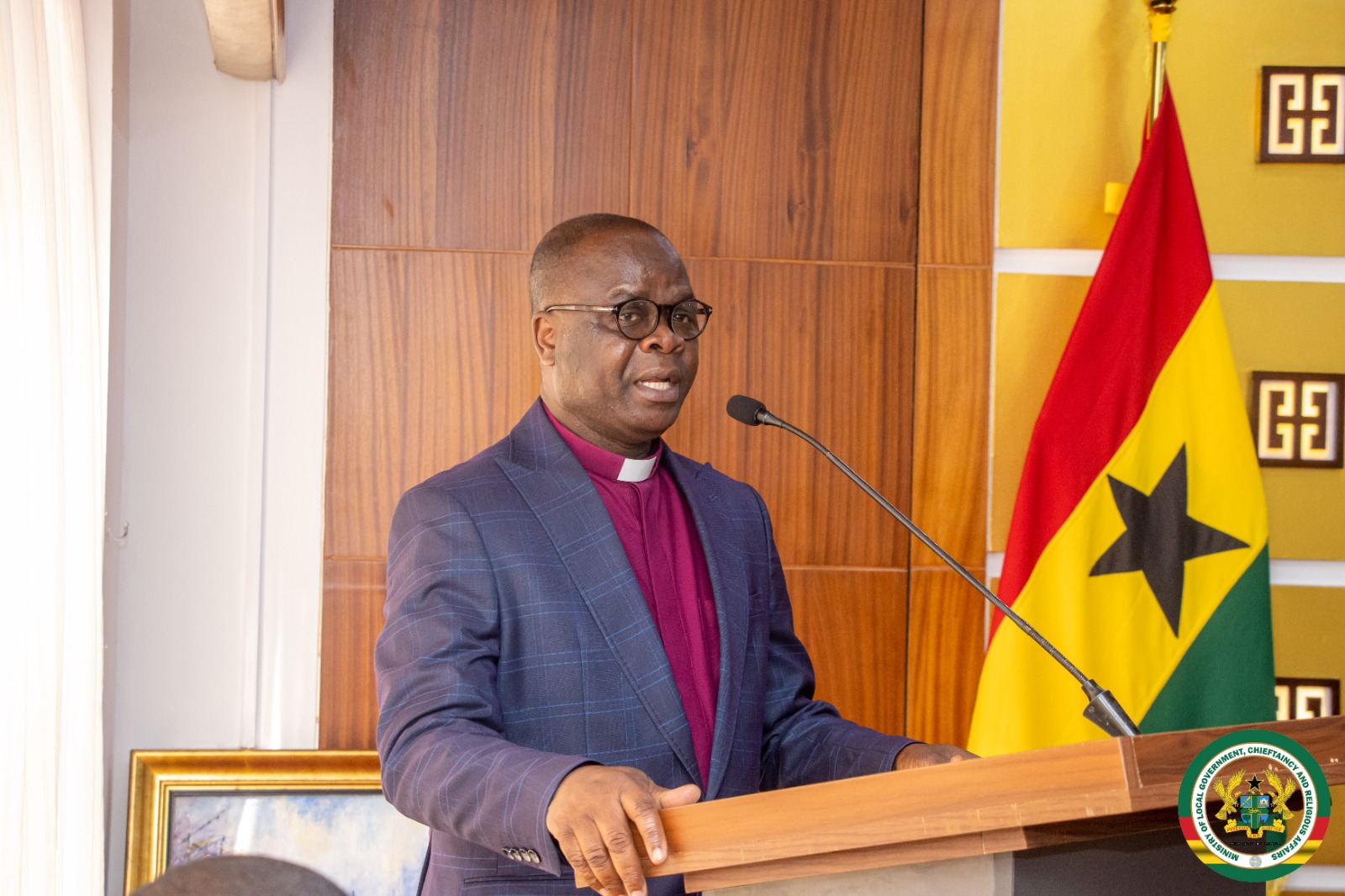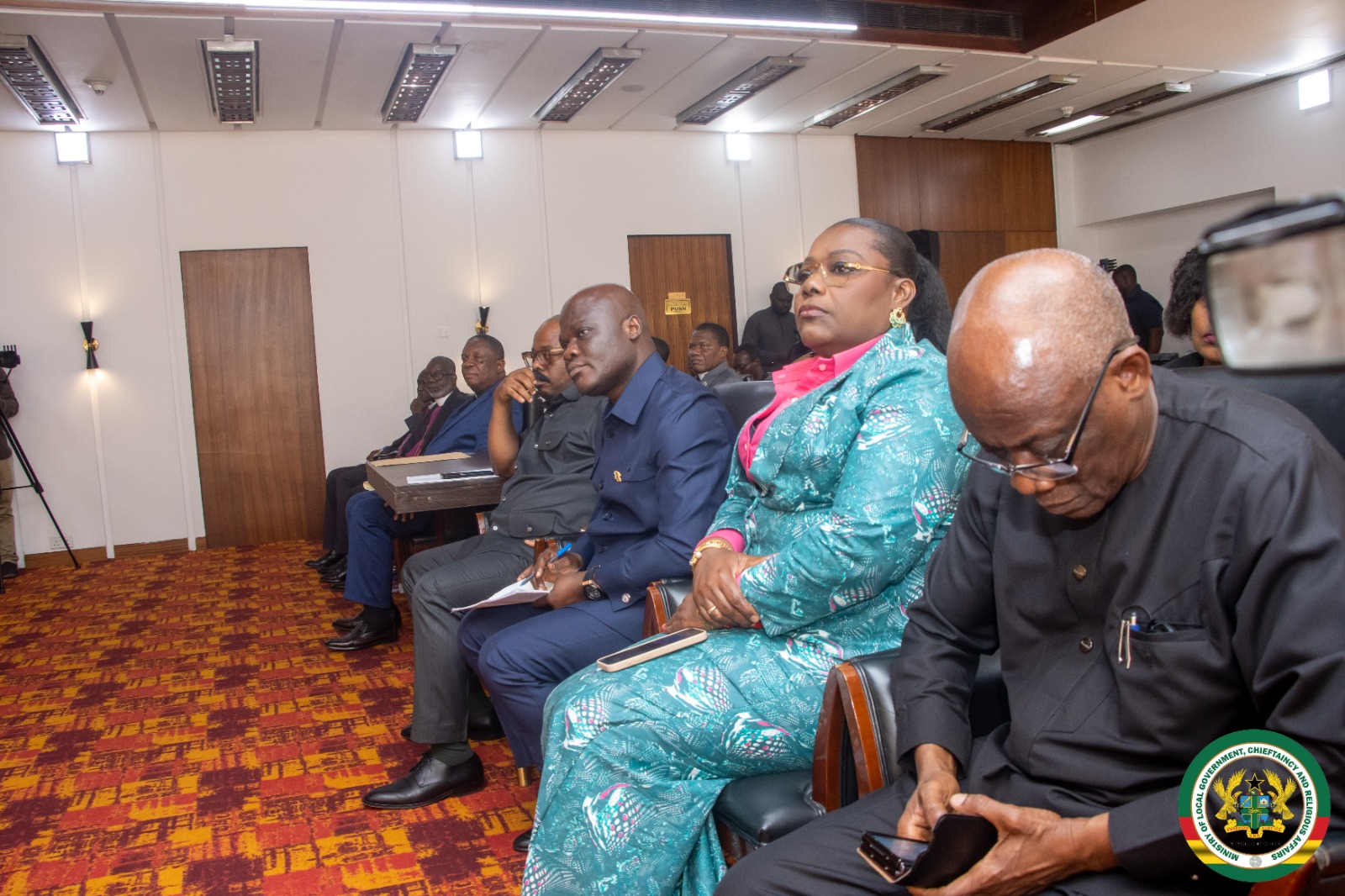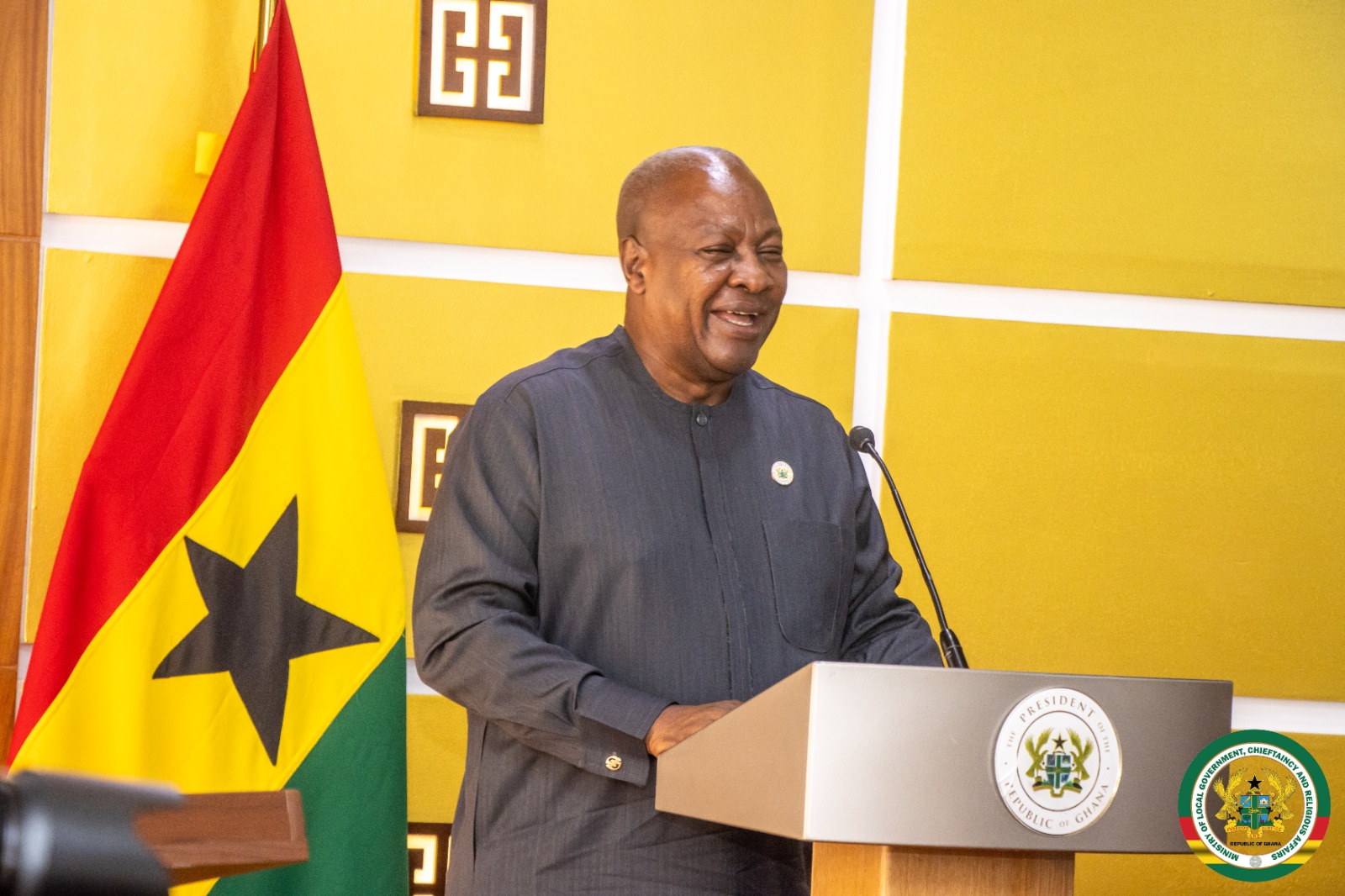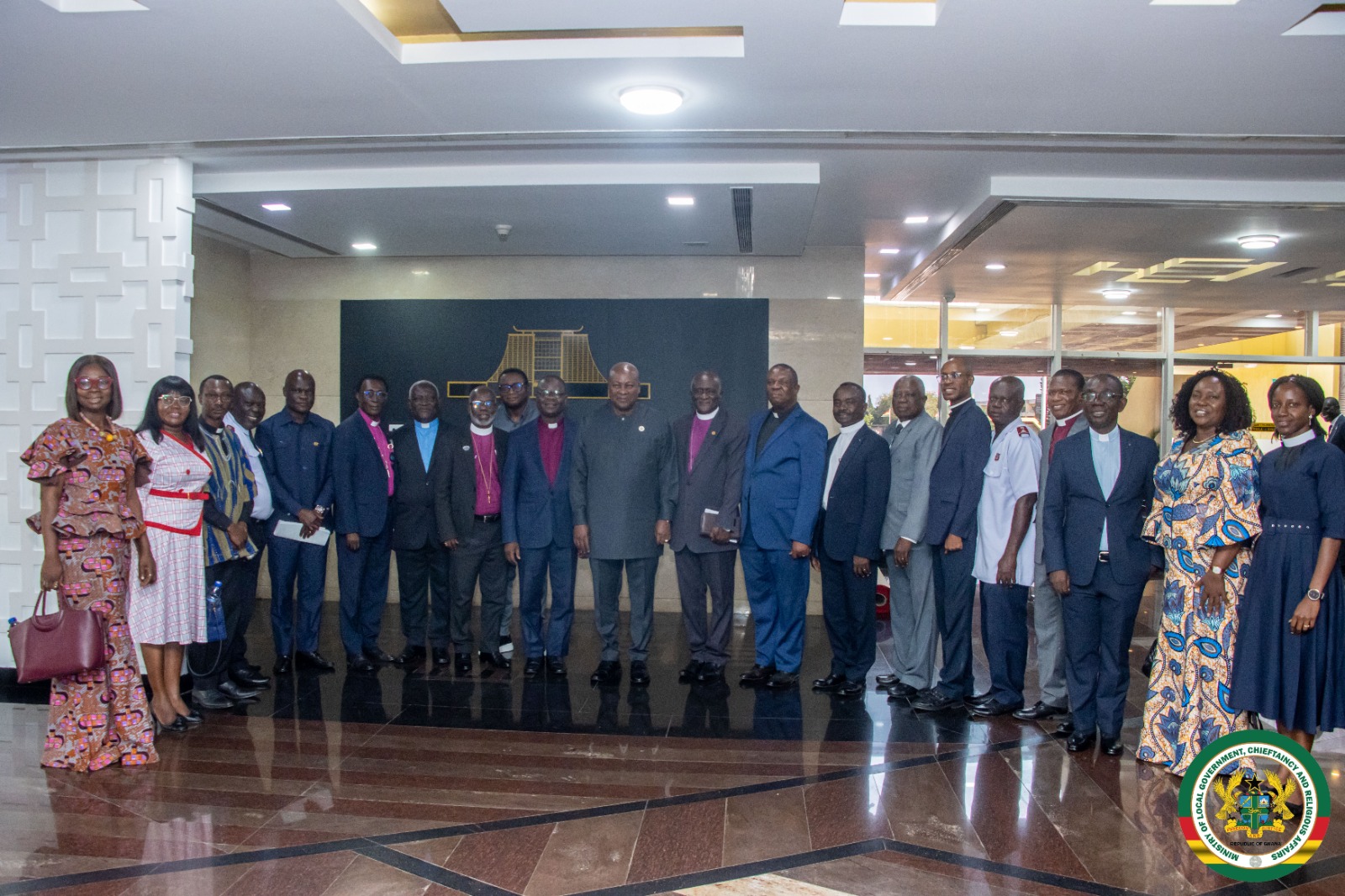The Minister for Local Government, Chieftaincy, and Religious Affairs, Hon. Ahmed Ibrahim, has tasked the Hajj Agents Association to channel all pilgrimage -related matters through the for effective resolution.
According to him, with the Ministry’s mandate as the primary government interface on religious affairs, the Ministry has a central role at the outset and clarified the proper channels of communication. The Minister made this call at a meeting with the association, on Friday, 28th November 2025 at the Ministry conference room in Accra to address key concerns raised by the agents regarding the Hajj pilgrimage.
Hon. Ibrahim outlined a path forward, urging a system of peer review among agents to ensure high standards. He also called on the association to desist from the sale of protocol tickets to address the concerns of paying pilgrims. He expressed confidence in the leadership of the Hajj Board, stating that they will deliver good results.
Touching on the report, the Minister noted that another meeting should be conveyed to have to review the reports with the key concerns raised for inward submission to President John Mahama. He further suggested establishing a regular dialogue forum, proposing that the Hajj Agents Association and the Hajj Board can have meetings monthly at the Ministry.
For his part, the Chairman of the Hajj Board, Alhaji Tanko commended government for its initial intervention in reducing the Hajj fee from GH₵75,000 to GH₵60,000. They then presented a list of pressing issues requiring further attention, which included a call for an additional reduction in the overall cost of the Hajj pilgrimage, the need for pre-financing the Hajj pilgrimage, the separation of paying pilgrims from those on government protocol, and the timely payment of Hajj commissions to the agents.
The Hajj Agents Association formally handed over a detailed report of their concerns to the Minister, with the hope of government fully addressing all their concerns to ensure an efficient pilgrimage in 2026.
This engagement is instrumental in shaping the government's response to the operational challenges within the Hajj pilgrimage system and sets the stage for deeper collaboration between the agents, the board, and the Ministry.
Source: Nora Mumuni
Public Relations Unit, MLGCRA
“The future of Ghana’s fisheries will be won or lost at the community level, and without strong local leadership, no national policy can deliver the change we seek.”
With these compelling words, the Minister for Local Government, Chieftaincy and Religious Affairs, Hon. Ahmed Ibrahim, delivered a firm call to action at the National Chief Fishermen and Fishmongers (Queen Mothers) Conference held at the Accra International Conference Centre.
Hon. Ibrahim, addressing Chief Fishermen, Queen Mothers, fishmongers, and coastal leaders from the Greater Accra, Central, Volta, and Western Regions, underscored the central role of Metropolitan, Municipal and District Assemblies (MMDAs) in safeguarding Ghana’s marine resources and championing sustainable fisheries management.
He noted that under the Local Governance Act, 2016 (Act 936), Assemblies are not just administrative units but “drivers of local development and key partners in community-level resource management.” He emphasised that MMDAs must integrate fisheries governance, coastal protection, and natural resource planning into their development strategies.
“Our Assemblies must work hand in hand with Chief Fishermen and Queen Mothers. Without that collaboration, we cannot enforce responsible practices or protect the livelihoods that depend on our waters,” he stated.
The Minister explained that MMDAs play a frontline role in translating the Fisheries Act, 2023 (Act 1146), into practical community action, including enforcing by-laws, ensuring sanitation at landing sites, promoting compliance with fishing regulations, and coordinating with traditional authorities.
He also highlighted the Local Economic Development (LED) Policy (2024 to 2029), stressing that Assemblies must create an enabling environment for local livelihoods, particularly in fish processing, cold chain systems, market access, youth skills development, and business support for women in the fisheries value chain.
Addressing the growing impact of climate change, Hon. Ibrahim called on Assemblies to take the lead in adaptation measures such as mangrove restoration, shoreline protection, and sensitisation of coastal communities.
“If we fail to act with urgency, we risk losing not only our marine resources but the cultural identity and economic strength of our coastal communities,” he warned.
He further urged MMDAs to tap into emerging opportunities within the Blue Economy, including aquaculture development, marine spatial planning, coastal tourism, and equitable distribution of benefits from marine resources.
The conference, hosted by the Minister for Fisheries and Aquaculture Development, Hon. Emelia Arthur, and attended by His Excellency President John Dramani Mahama, formed part of Ghana’s commemoration of World Fisheries Day. It brought together fisherfolk associations and traditional authorities to examine the Reset Agenda for the fisheries sector.
Hon. Ibrahim praised the indispensable leadership of Chief Fishermen, Queen Mothers, and women processors, describing them as “custodians of coastal wisdom” whose roles in community mobilisation remain vital.
He reaffirmed the Ministry’s commitment to strengthening collaboration with traditional authorities and ensuring that local governance structures play their full role in protecting Ghana’s fisheries for future generations.
“Let us protect our waters, empower our fishing families, and secure a resilient future for Ghana’s coast,” he concluded.
Source: Darling Maame Efua Cann
MLGCRA PR Unit
President John Dramani Mahama has received the leadership of the Christian Council of Ghana at the Jubilee House for a wide-ranging discussion on national development, moral values and good governance. The delegation was accompanied by the Minister for Local Government, Chieftaincy and Religious Affairs, Hon. Ahmed Ibrahim, and his Deputy, Hon. Rita Naa Odoley Sowah, reflecting government’s commitment to open, respectful engagement with faith-based institutions.
The dialogue opened with the Council expressing deep concern about the scale and impact of illegal mining across the country. They described galamsey as a threat to the nation’s moral fabric, its rivers, lands and long-term security. President Mahama acknowledged the urgency of the matter and outlined the government’s renewed approach to tackling the crisis. He noted the establishment of the National Anti-Illegal Mining Operations Secretariat, NAIMOS, as the central operational body coordinating intelligence, enforcement and monitoring across affected communities. He explained that government is tightening controls on the importation of excavators and introducing structured reclamation job schemes that provide genuine livelihoods for young people while restoring degraded lands. He assured the Council that these interventions form part of a short-to-medium term national roadmap aimed at environmental recovery and community stability.
The discussion also touched on Ghana’s moral and family values, with the Council seeking clarity on government’s direction in this area. President Mahama restated his public position that once Parliament debates, amends, endorses and passes the Proper Human Sexual Rights and Ghanaian Family Values Bill, he will assent to it. He affirmed that the family remains the centre of the nation’s social life and that government is committed to protecting Ghana’s cultural identity and moral cohesion.
On the matter of national heritage, the Council reiterated their longstanding advocacy for the completion of the National Cathedral, describing it as a symbol of unity and spiritual significance. The President acknowledged their concerns and said government will continue to explore a pathway that is transparent, inclusive and responsible to the national interest.
The conversation extended to governance and accountability. The Council called for stronger anti-corruption efforts and equal application of justice. President Mahama assured them that independent oversight institutions will be strengthened to enhance public confidence and ensure fairness across all sectors. The Council also raised issues relating to mission education, urging better collaboration and clarity around autonomy in school management. The President acknowledged the valuable history of mission schools and pledged continued engagement to support their role in national development.
The delegation further expressed sympathy over the recent military recruitment tragedy. President Mahama thanked them for their condolences and assured them that investigations and systemic reviews are ongoing to prevent such incidents and safeguard national recruitment processes.
Source: Darling Maame Efua Cann
MLGCRA PR UNIT

